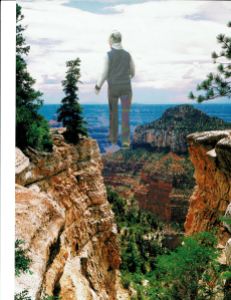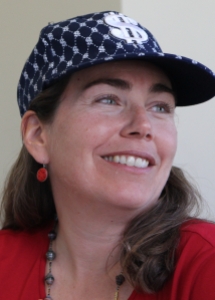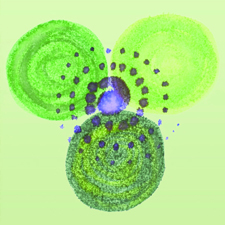I am no stranger to middle of the night risings. Too often I am wide awake at 3 or 4 a.m., filled with a mix of fear—of real possibilities or something wild from my imagination—and creativity. For much of the fall, however, I cozily slept past my usual time of night risings.
That shifted after the election. Real fears, imagined fears and creativity all swirled together, leaving me unable to return to sleep.
Real fears threaten my dreams of justice for our world. I must continue to wake up to both historical and current realities in the world around me, laying aside well-worn sound bites of misinformation. Starting with myself, I must notice when the cultural shards of fear and hate show up inside me, and take quick action to align my heart and behavior. Then, I must speak what is mine to say and take the action that is mine to take.
Imagined fears roil one after another. Here I easily teeter at the edge of a nightmare, too paralyzed or horrified to move.
Creativity dances in the middle of it all. For decades I’ve been practicing creative ways to communicate across differences, to embrace diversity and to act in alignment with my values and heart. This moment in our nation’s history demands profound creativity. Playful innovation, even in a time of crisis, has the power to break through our divisions to let something unexpected emerge.
I have spent my entire life honing the skills and practices I will need for this very moment. Nevertheless, part of me doesn’t feel ready. But epic adventures usually start without completed preparation—Hobbit Balbo Baggins left without his pocket-handkerchief and Queen Elise was taken, kicking and screaming, wearing a silk nightgown. Their fictional adventures support my in-the-flesh adventure of living my own life.
This is a moment that requires me to stand steady in the paradoxes of this scary midnight hour. I have to hold onto my critical thinking and seek facts rather comfortable, well-worn arguments. I have to hold onto attentive, conscious listening, especially in conversations with those with whom I disagree. I have to be creative in seeking partnerships across what feels like an abyss of difference.

Years ago, in the middle of a Harvest Time sacred play ritual, I sat at a table with a group of characters. We were invited to don any of the costumes strewn around the room and come to the table dressed as the part of us that always felt excluded from the party. I don’t remember my outfit, but I clearly remember the name I gave that hidden part of myself—Abyss Walker.
Today, I honor the abyss walker part of myself. As much as I may go kicking and screaming, complaining that I am not up to the task, I know how to walk open heartedly across an abyss, the deep fissures that cut deeply across our nation and world.
First, I keep my heart open and grateful. Next, I listen—really listen—to others. This is the sort of listening I’ve been practicing in the Be Present Empowerment Model—listening to the other while simultaneously listening to myself. I need to know when the voices in my own head have grown louder than the person I am trying to listen to. Those inner thoughts are legion: My rebuttal; my fears; my corrections; my facts; and my horror. Pretending to listen when all I can hear is my own inner voice is disrespectful and leaves me with no ability to hear what is actually being said. The partnership across difference that I seek requires that I am consciously hearing the person I am listening to, and that I do whatever I need to do to keep my attention on her/him.
This sort of listening requires a level of personal responsibility that often pisses me off. It isn’t fair. Why do I have to listen so respectfully when I don’t feel respectfully listened to?
Why indeed? The only person I am responsible for is me. I have a clear choice. I can feel virtuous in my beliefs and only listen to people with whom I agree, but that choice will allow the divisions to grow and deepen. Or I can honor my values, my spirit and my faith and act in ways—in this case to listen—that flow from my deepest desire.
And yet, I can’t abdicate responsibility for showing up in the world in the fullness of my personal leadership. We need every one of us fully present, each stepping into our full leadership. I have been given a perspective and longing that must be spoken, and acted on. This is no place for silence, for playing nice.* It is a time for respectful conversations across our differences—seeking places of common ground that may be hidden by the passion of our beliefs, and refraining from demonizing the other person—all the while, sharing the perspective that is mine to share.
I have spent most of my adult life working for root level change—of our hearts, spirits and of the society. I do believe that our democracy has long been broken and filled with historical and current injustice. Profound change is needed. This election showed that millions of Americans agree that root level change is needed.
I believe that trying to change our nation from the top down, as we have done in this election, is the hardest way. But here we are. Abyss Walker will take me where the more timid parts of myself fear to tread. Who is the brave adventurer inside you, ready to lead you on the sacred path that is yours to walk for the good of our world?
*Nice is a word that has too long been held as a virtue for women, despite the fact that the origins of the word “nice” includes stupid, ignorant, incapable, silly and coy.
Novels mentioned are J.R.R Tolkien’s The Hobbit and Rae Carson’s Girl of Fire and Thorns




